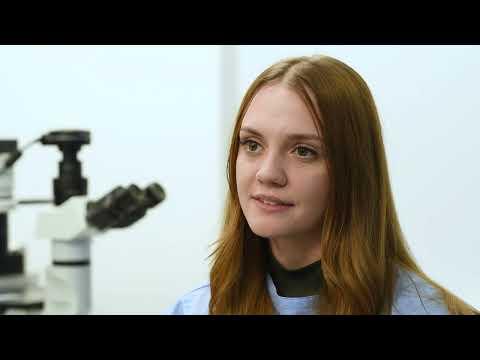Andrew Care
"Cage vs Age": Development of an innovative nanotechnology to halt the spread of hyperphosphorylated Tau protein in Alzheimer's disease

Award
Bondi2Berry and Bondi2Brighton Project Grant
Status
Completed
Start Date
31 March 2020
About the project
The original aim of this project was to investigate whether a novel protein nanocage system is able to selectively capture abnormal hyperphosphorylated Tau (pTau) proteins within the extracellular space and clear them from the brain. Briefly, this involves using an antibody tagged with a ‘cargo-loading peptide, CLP’ that is designed to selectively bind pTau. The CLP tag then attracts and binds components of a protein nanocage, causing them to self-assemble around pTau, capturing it inside. This may help stop pTau transmission throughout the brain, halting the spread of Alzheimer’s disease (AD).
Nanocapture testing: Initially, we optimized the selective capture of model fluorescent proteins using the nanocapture system. To then develop the pTau-targeting nanocapture system, we first designed CLP-tagged anti-pTau antibodies, however, we were unfortunately unable to stably produce them. Furthermore, we found that the protein nanocages self-assembled far too quickly for the nanocapture system to target pTau effectively. While we published this interesting data (Boyton et al. 2021), we needed to find alternative ways to clear pTau from the brain.
A vaccine against pTau: Protein nanocages can be use as vaccines. We pursued the idea that decorating protein nanocages with pTau antigens will generate a vaccine capable of triggering the immune response to recognise and clear abnormal pTau from the brain. Accordingly, we have developed a robust system to construct pTau-decorated nanocages and will investigate their efficacy as an AD vaccine in animal models shortly. We have already performed a preliminary safety study, finding that the nanocages are non-toxic.

Publications and presentations resulting from award
Boyton I, Goodchild SC, Diaz D, Elbourne A, Collins-Praino LE, Care A. Characterizing the Dynamic Disassembly/Reassembly Mechanisms of Encapsulin Protein Nanocages. ACS omega. 2022;7(1):823–36. doi: 10.1021/acsomega.1c05472
Where are they now?
At the time of award, Dr Care was working in the department of Molecular Sciences at Macquarie University. He is now a Chancellor's Research Fellow in the School of Life Sciences at the University of Technology Sydney (UTS).
